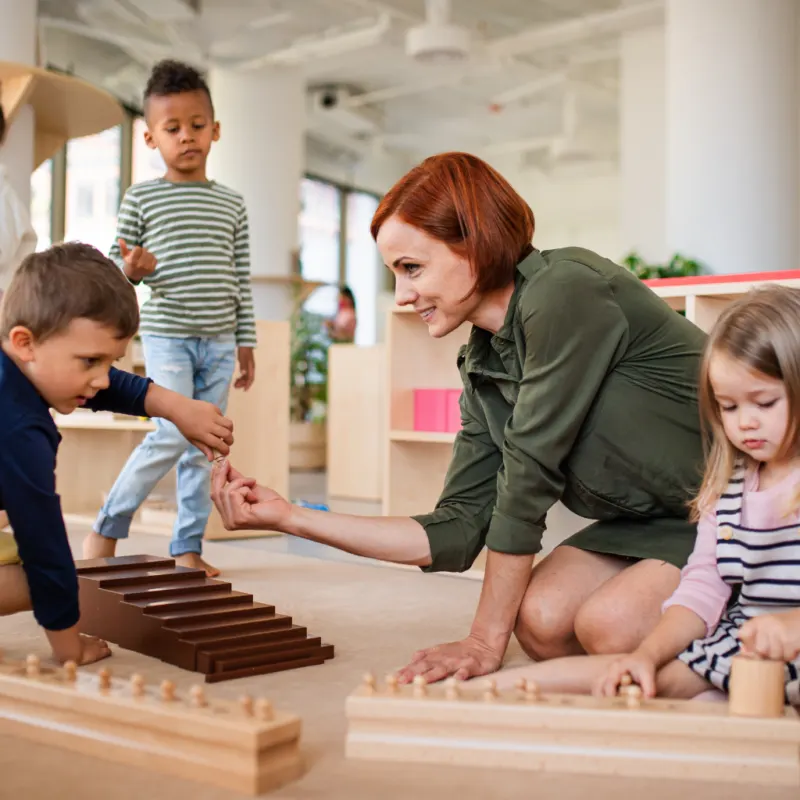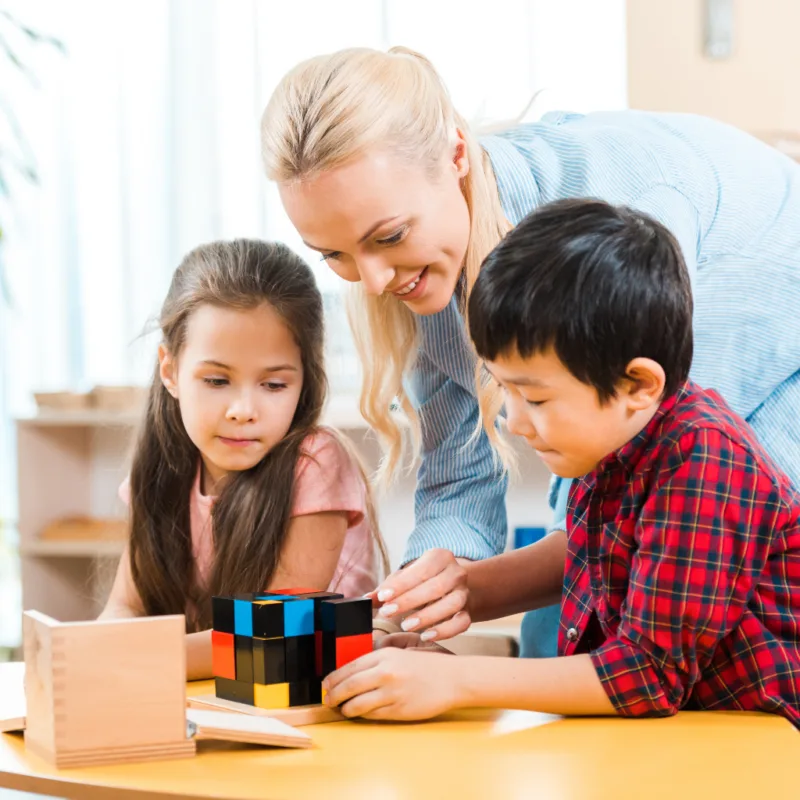The Montessori Method is student-centered and allows children to work at their own pace while receiving guidance and nurturing from trained teachers.
In a Montessori preschool, teachers provide students with various educational materials from which to choose. Children determine what their focus will be, advancing according to teacher guidance and their own unique learning plans.
Teachers offer various activities for children to engage in, with a focus on hands-on learning.

Specifics of the Montessori Method
In Montessori education, classroom materials help children to develop both fine and gross motor skills and master the skills necessary for daily living.
A Montessori preschool is therefore equipped with items such as utensils, cleaning materials, objects needed for table setting and dishwashing, and clothing that requires buttoning and zipping.
A Montessori school also provides the opportunity for children to engage in sensory activities, such as stacking blocks, using touch boards, and experimenting with different sounds.
In addition, a Montessori education exposes a child to writing, first beginning with holding a pencil, and teaches math by using concrete materials. Children exposed to the Montessori method also learn the phonics skills necessary for reading.
Montessori Theory 101
At the core of the Montessori Method is the belief that a child should select which materials to use and should be uninterrupted as he or she works with the materials. The method also requires a child to set up materials and clean them up independently.
During learning time, children are free to choose which activities to engage in, with the goal of developing the ability to concentrate on activities of interest. A teacher may redirect children who are disrupting others or assist ambivalent children with selecting preferred activities.

The Benefits of the Montessori Learning Method
The self-directed Montessori Method has several benefits for children. According to a 2017 report in the Science of Learning, one study compared children who received a Montessori education to those who did not.
The study found that 5-year-old children who attended a Montessori program had better letter-word identification, math, and social skills. Whereas older children who received a Montessori education demonstrated better story-writing and social skills.
A second study found similar results, showing that children at a Montessori school showed greater improvements in reading, math, vocabulary, and social skills than students attending schools not strictly following the Montessori method did.

As children grow older, the Montessori method may increase their motivation to succeed in school. In fact, one study, described in the 2017 report in the Science of Learning, found that middle school children in a Montessori program demonstrated greater intrinsic motivation when compared to students in typical schools.
Based on the body of research on the Montessori Method, it appears that this form of schooling is effective and helps children to develop strong language, math, and social skills.
At Montessori St. Louis, children from the age of 6 weeks to 6 years can benefit from this method, as our three centers offer Montessori daycare and preschools suitable for a range of developmental stages.
Sources:
- https://www.namontessori.com/
- https://montessori-nw.org/what-is-montessori-education
- https://www.nature.com/articles/s41539-017-0012-7
